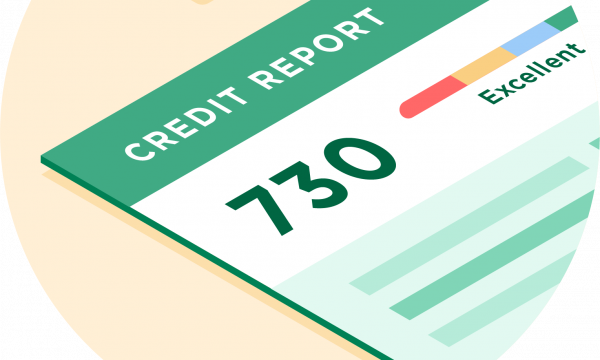Can Medical Bills Affect Your Credit? Here’s What to Know
Unpaid medical bills could hit your credit report, but those with starting balances of less than $500 shouldn't appear.

Many, or all, of the products featured on this page are from our advertising partners who compensate us when you take certain actions on our website or click to take an action on their website. However, this does not influence our evaluations. Our opinions are our own. Here is a list of our partners and here's how we make money.
Updated July 14
CFPB rule to remove medical debt from all credit reports overturned: In January, the Consumer Financial Protection Bureau finalized a rule that would remove an estimated $49 billion in unpaid medical bills from the credit reports of roughly 15 million Americans. It would also prevent medical bills from appearing on credit reports going forward and prohibit lenders from considering medical debt when making decisions.
The rule, which was set to take effect March 17, faced multiple lawsuits that said the CFPB overstepped its authority. In February, a district court judge granted a request to pause the rule for 90 days, and in May, the rule was stayed until July 28.
On July 11, U.S. District Court Judge Sean Jordan, said that the medical debt rule did, in fact, exceed the CFPB's authority. The opinion said the medical debt rule was contrary to the Fair Credit Reporting Act, which allows consumer reporting agencies to report data about medical debt. As a result, medical debt will continue to appear on credit reports, although the CFPB can continue to encourage lenders to prioritize other financial information in their assessments.
A serious illness or injury can be disruptive. You need to heal, and you may be overwhelmed for a while as you put your work and family life back together.
There’s a strong chance your finances will be affected, too, if an unpaid medical bill makes its way to your credit reports. (Read more about your options for paying medical bills).
Even smaller medical bills can strain finances, too. Here's how medical bills affect your credit and how to deal with the fallout if you end up in collections when a bill goes unpaid.
Do medical bills affect your credit?
Medical bills that have been paid will not appear on your credit reports or impact your credit scores. Whether unpaid medical debt will affect your credit depends on the original reported balance, how long the debt has existed and which credit scoring model is used.
Paid medical collections were erased from credit reports in July 2022 and are no longer reported by the three major U.S. credit bureaus. The waiting period for medical collections to appear on credit files increased from six months to one year. Check your reports to make sure that your paid medical collections no longer appear.
In April 2023, all three credit bureaus announced the removal of unpaid medical collections with an initial balance of less than $500 from credit reports.
In June 2024, the CFPB proposed a rule that seeks to remove medical bills from credit reports. The rule would also prevent credit reporting companies from sharing medical debt with lenders and prohibit lenders from basing their lending decisions on medical information. A final decision is expected in early 2025.
How medical debt affects credit scores
Scoring company VantageScore now excludes all paid and unpaid medical collections — regardless of how much is owed or how long the debt has been in collections — from its 3.0 or 4.0 score calculations. Your credit score seen on NerdWallet, which is a VantageScore 3.0 fueled by TransUnion data, will reflect this.
FICO said the most recent medical debt guidance would have little impact on its scores because of the way it already differentiates between unpaid medical collections and other kinds of unpaid debts.
According to an analysis by the Urban Institute of its credit bureau data, people who had medical collections — about 27 million adults — in August 2022, as the changes were just going into effect, had average VantageScores of 585. A year later, their average scores had climbed to 615, moving them out of the lowest score band. The average VantageScores of consumers who didn't have medical debt showed little shift in the same time period, falling one point from 712 to 711 .
Stress less. Track more.
See the full picture: savings, debt, investments and more. Smarter money moves start in our app.
How unpaid medical bills can harm your credit
Medical bills are most likely to affect your credit if they go unpaid for many months and get turned over to collections. If you don't pay a bill, eventually your medical provider may turn the debt over to a collections agency. After a yearlong waiting period, if your unpaid bill has an initial balance of $500 or more it's probably showing up on your credit reports as having gone to collections.
This is where things get messy, because the information on your credit reports is used to create your credit scores. Failure to pay a bill affects the biggest factor determining your credit scores: payment history. Consequently, having a medical bill with a starting balance of $500 or more in collections can result in serious damage to your credit scores.
To help your score rebound, the best thing to do is keep consistent credit habits as much as you can, such as paying your other bills on time and keeping your credit card balances low.
» MORE: Get your free credit report from NerdWallet
How to get medical bills off credit reports
Medical collections will be wiped from your credit reports once they’re paid. But what if your medical bill is in collections by error and is hurting your credit score? If the bill is less than 1 year old, if it has been paid in full by you or your insurance provider, or if the starting balance was less than $500, you should be able to dispute the error with the credit bureau.
Making the effort to file a dispute is worth it because bad credit scores can make borrowing money really expensive.
How to dispute a medical bill on your reports
Here are the steps you can take to dispute medical collections on your credit reports:
- Gather evidence. Collect as much documentation as you can to prove the bill was paid. Ask for payment records from your doctor’s office, find copies of canceled checks or dig up old credit card statements.
- File your dispute with any credit bureau that's reporting the error. Make sure to check your credit reports from all the three bureaus. You can get free weekly access to your reports by using AnnualCreditReport.com.
- Keep communicating. The Fair Credit Reporting Act requires the credit bureaus to follow up on all credit reporting error disputes. Keep communicating with the companies to check on the status of your dispute, and be prepared to provide additional documentation if requested.
Get credit reports in Spanish
🤓 Nerdy Tip
You can request your credit report in Spanish directly from each of the three major credit bureaus:· TransUnion: Call 800-916-8800.
· Equifax: Visit the link or call 888-378-4329.
· Experian: Click on the link or call 888-397-3742.
🤓 Consejo Nerdy
Usted puede solicitar una copia de su informe crediticio (gratis y en español) de cada una de las tres principales agencias de crédito:
· TransUnion: Llame al 800-916-8800.
· Equifax: Visite el enlace o llame al 888-378-4329.
· Experian: Haga clic en el enlace o llame al 888-397-3742.
How long do medical bill collections stay on your credit reports?
Medical debt collections have to come off your reports if you or your health insurance company pays up. Only unpaid medical collections with a starting balance of $500 or higher will show up on your reports, where they’ll stay until they’re paid or for seven years.
Why seven years? Generally, collections accounts can take around seven years to drop off your credit report, although the impact on your credit score lessens over time.
» Check your credit: Get a free credit score from NerdWallet
Stress less. Track more.
See the full picture: savings, debt, investments and more. Smarter money moves start in our app.
How to keep medical bills from hurting your credit
You can take some steps to prevent future medical bills from affecting your credit.
- Follow up with your insurance company. Understand your insurance policy and follow up by phone or email to make sure the company is paying the bills it has agreed to cover.
- Negotiate unmanageable bills. When you can’t afford to pay a bill, contact your medical provider and try to negotiate it down or ask for a payment plan. If you’re successful, get the new amount you owe in writing so that you have a record of your agreement in case of a future dispute.
- Consider hiring a billing advocate. If you’re overwhelmed by your bills and aren’t sure how to proceed, think about hiring a medical billing advocate. This professional can sort through your bills and try to negotiate them on your behalf.
- Crowdfund your medical bill. Set up a fundraiser with a crowdfunding site such as GoFundMe’s GiveForward to get help with your bills from family, friends and strangers — though it's not a surefire way to pay off medical debt.
Article sources
NerdWallet writers are subject matter authorities who use primary,
trustworthy sources to inform their work, including peer-reviewed
studies, government websites, academic research and interviews with
industry experts. All content is fact-checked for accuracy, timeliness
and relevance. You can learn more about NerdWallet's high
standards for journalism by reading our
editorial guidelines.
- 1. Urban Institute. Medical Debt Was Erased from Credit Records for Most Consumers, Potentially Improving Many Americans' Lives. Accessed Nov 7, 2023.
Related articles








